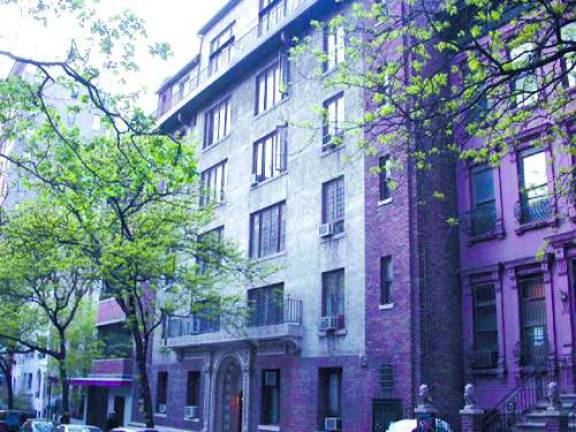West Siders Probe Candidates

Landmark West presses for sensitive development Overdevelopment. Zoning. Crowding and lack of open space. These are the issues that Upper West Siders hounded the seven City Council District 6 candidates about at last week's forum hosted by Landmark West at New York Society for Ethical Culture, 2 W. 64th St. The seven candidates are Mel Wymore, former Community Board 7 Chair; Helen Rosenthal, another former chair of Community Board 7; Marc Landis, an attorney and Democratic Party district leader; Noah Gotbaum, former president of Community Education Council District 3; Debra Cooper, a longtime Upper West Side activist; Ken Biberaj, vice president of the Russian Tea Room, and Tom Syracuse, the Green Party candidate. The big question of the night was "What kind of sound development should we have?" And candidates had a variety of answers at the ready. The buzz phrases of the night were "smart development" and "responsible development," used by Wymore, Landis, Gotbaum and Biberaj. The candidates all had different definitions of what these terms might mean. Landis said they need to be thinking before developing, "Where will people live? Where will kids go to school," he said are the questions that need to be asked before a high rise is put up. Ken Biberaj said that development can't be "looked at in a vacuum." But Arlene Simon, the president of Landmark West!, an Upper West Side preservation committee, said that it's all about sensitive development, not smarter development that takes into account the best interests of the community, when deciding where a building should go, and how many stories it should be. "Everything is so bureaucratic, that by the time they get the zoning in place, the zoning is already inappropriate because so much time has passed," said Simon. "The public has the responsibility to work closely with elected officials to make sure the zoning is appropriate for the area. Not all areas should have the same zoning." Candidate Debra Cooper was focused on building smartly, meaning preparing New York and the Upper West Side for a "stormy future," and paying attention to flood plains for when the next Sandy hits. One of the solutions to zoning issues on the Upper West Side that Mel Wymore brought up is changing as-of-right development procedure, and other candidates discussed doing away with it completely. As-of-right development is development where the building owner is allowed to build without any zoning or City Planning approval processes. As-of-right was originally meant to allow developers to build and construct without having to go through bureaucratic rigmarole. Most developments and enlargements in the city are as-of-right, according to the New York City Department of City Planning. Wymore said that he believes that changing the as-of-right procedures could force developers to be more sensitive to community needs. But Arlene Simon is not convinced. "It's not so much the size and height of the buildings but rather it's the context that these buildings are put in that is often the problem," she said. "The developers and their lawyers know how to get around anything and everything." Another proposition, brought up by Helen Rosenthal, is a moratorium on all re-zoning, and to "down-zone" south of 86th Street. Down-zoning would change the zoning code and allow for less development. In other words, down-zoning could prevent developers from putting up modern skyscrapers all over the neighborhood. Simon said that while some down-zoning is needed, generalizing the need to apply to "all buildings south of 86th Street" is not necessary. There are some buildings and areas, she said, that don't need re-zoning. Finally, everyone was talking about ULURP, or the Uniform Land Use Review Process, the review procedure through which all public lands have to go, before a developer can build. For candidate Noah Gotbaum, this issue hits close to home. For awhile, P.S. 191 and 199 were in danger of being torn down and re-built, and because the land is technically owned by private developers who built up the air rights and would not have to go through the ULURP procedure. "ULURP doesn't work," said Gotbaum.